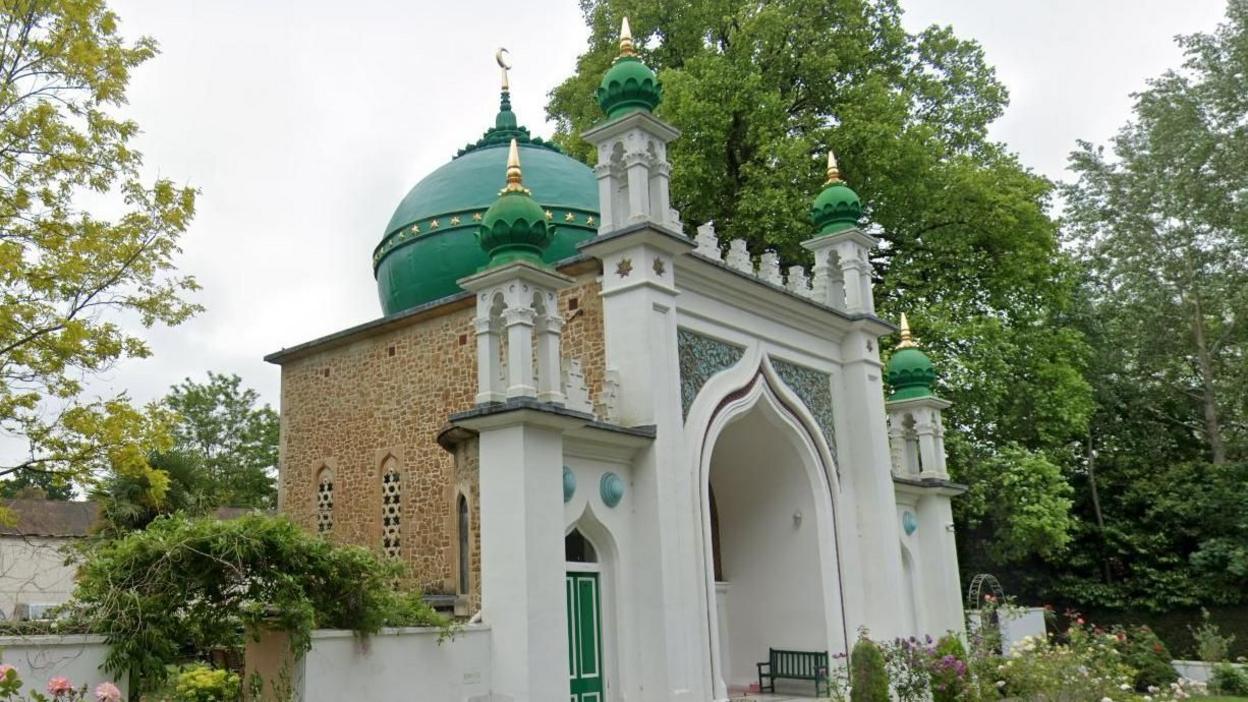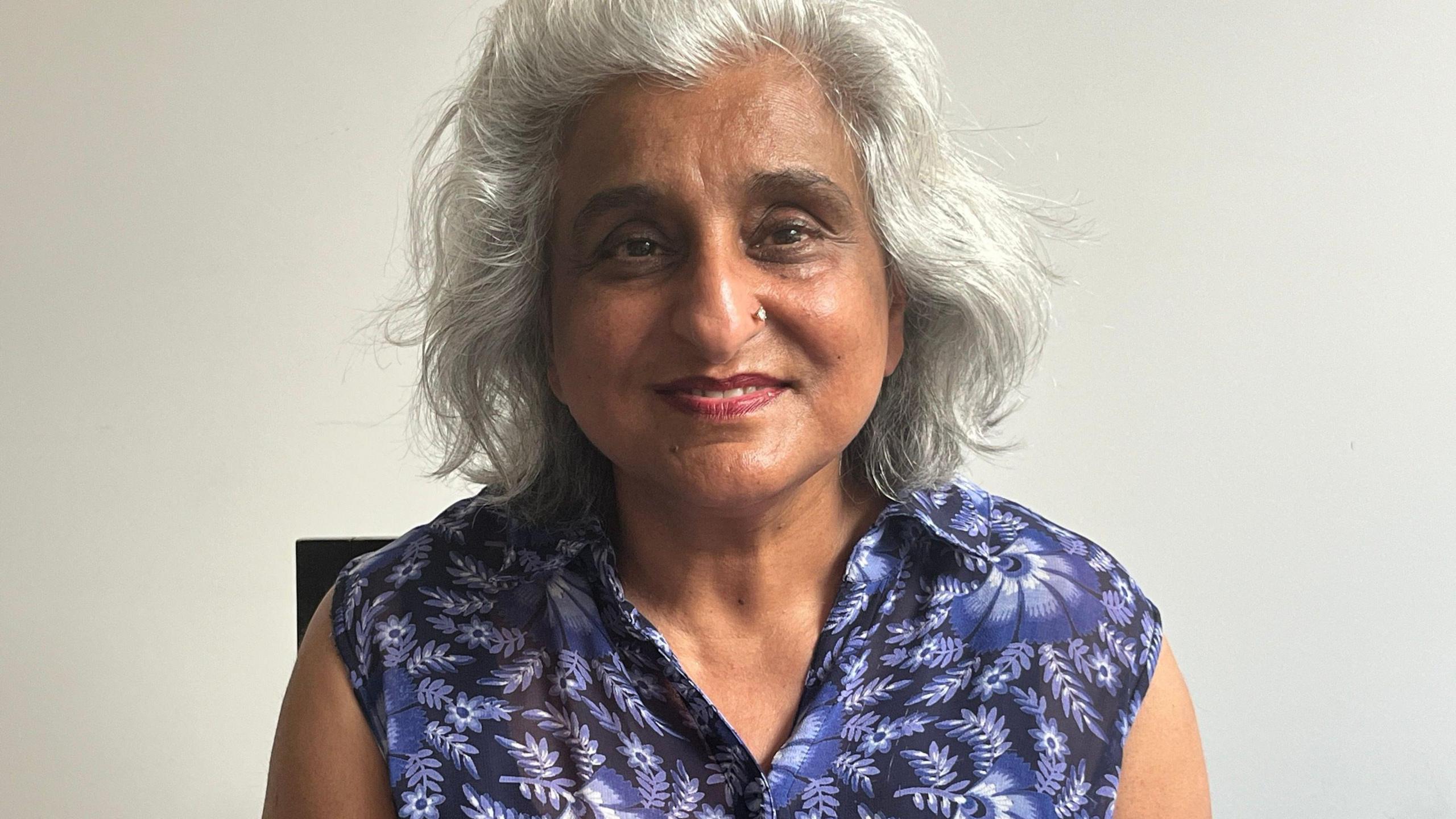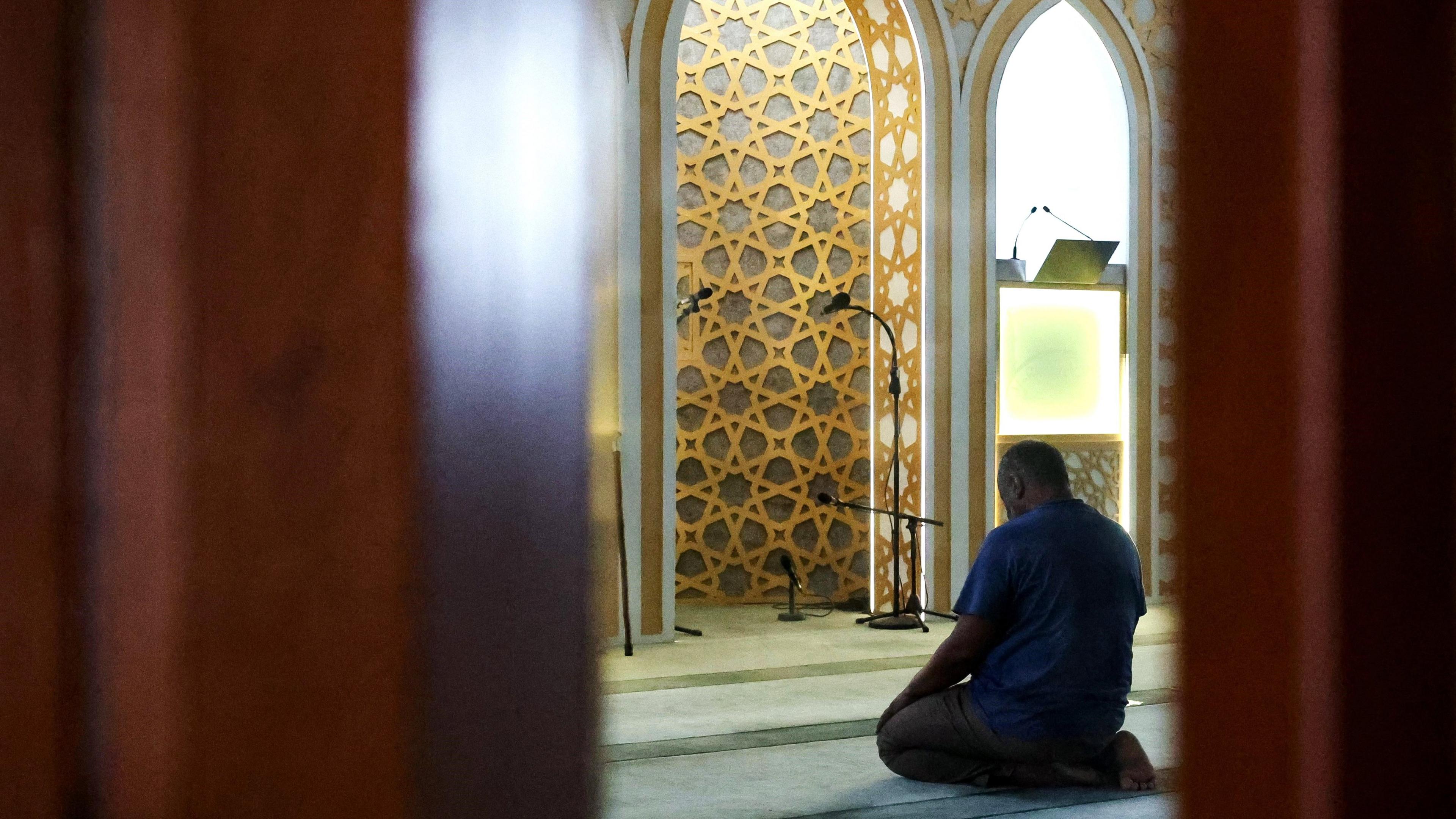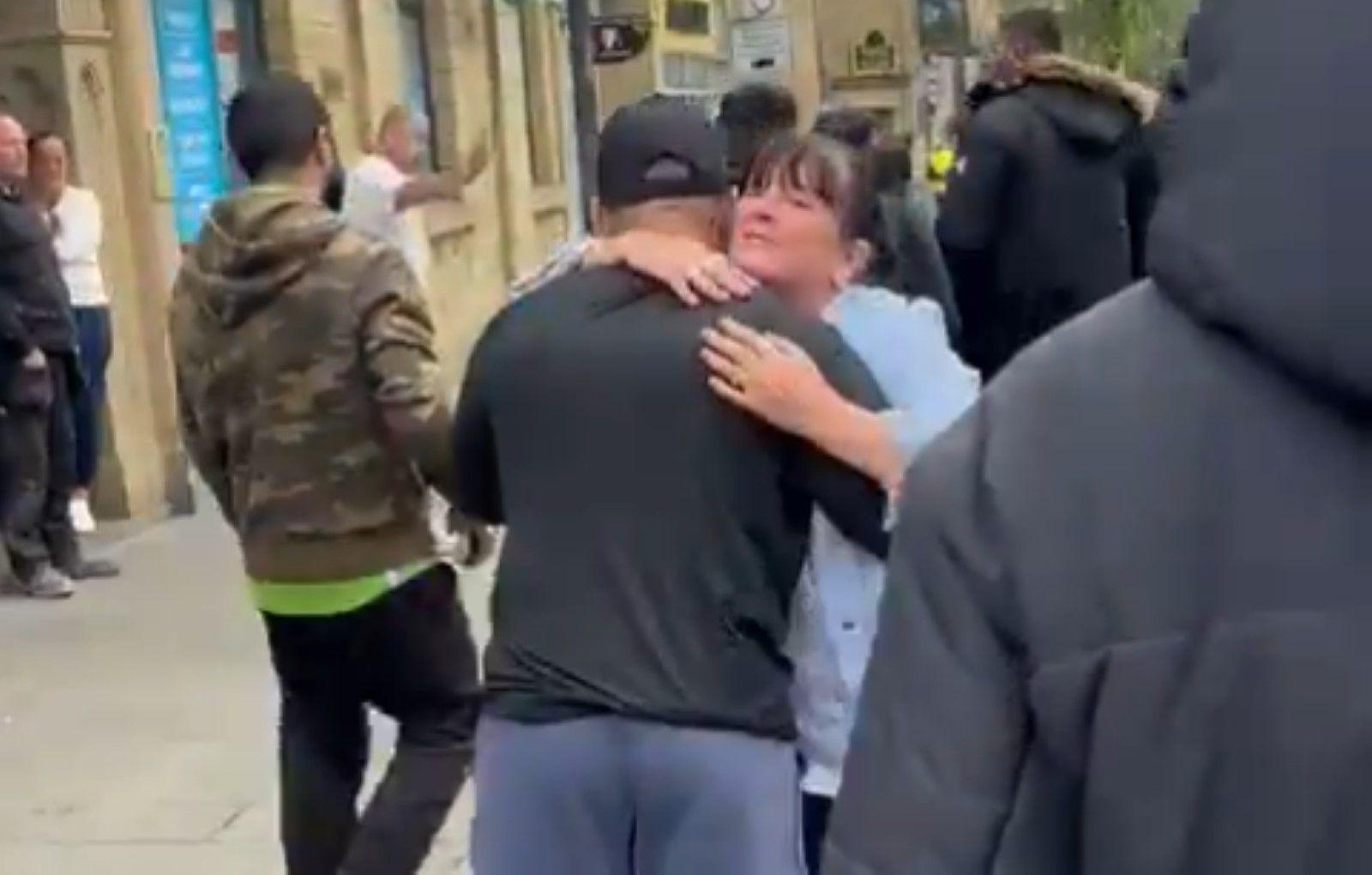'I’m proud to be British… let’s live in peace'

The UK’s oldest purpose-built mosque in Woking has implemented 24/7 security
- Published
Following the recent unrest across the UK, relations between the country’s different communities have been brought into sharp focus.
The BBC has spoken to women from ethnic minority backgrounds in Surrey about their concerns and hopes for the future.
Hundreds of people have been charged with offences linked to violent disorder in towns and cities across England and Northern Ireland in recent weeks.
In response to this, the UK’s oldest purpose-built mosque in Woking has implemented 24/7 security.
'Let's live together in peace'
Listen: Kawther Hashmi is eager people do not "fall into the trap” of reacting to political posts
Kawther Hashmi works with the Surrey Minority Ethnic Forum and is the wife of the Imam at Woking’s Shah Jahan mosque.
She said she felt reassured by an increased police presence in Woking and that the mosque had also sent WhatsApp messages asking people not to attend reports of unrest.
She said she was eager people do not “fall into the trap” of reacting to political posts.
She told the BBC: “I’m proud to be British. I’m British born.
"Yes, I have a different religion to you, my race is different to yours, but I want the same thing as you do… and I’m a human being, just like you are.
"So let’s live together in peace.”
'Listen and understand'

Neelam Devesher chairs the Surrey Minority Ethnic Forum
Neelam Devesher, who chairs the Surrey Minority Ethnic Forum, said she felt “shocked” at recent unrest.
She said: “What’s triggered that? We’ve got to actually listen and understand what life is like for those people and try and address their issues as well."
Ms Devesher praised Surrey Police, saying the force had "reached out" to the communities themselves.
"For a number of years we’ve been making sure the police are better able to engage with very isolated and hidden communities,” she said.
'Algorithmically silenced'
Ash, from Woking, also told BBC Radio Surrey that “it’s been a bit scary… you know it’s not something that I expected would be happening to someone who was born here".
Professor Nishanth Sastry, from the University of Surrey, said: "Social media has clearly played a huge role in both amplifying disinformation and misinformation.
"Social media also provides a significant platform for far-right views to flourish and reach millions of people.
"These companies have a fundamental responsibility to both limit the spread of misinformation and to give equal amplification to minorities' views as well.
"Collectively, we as a society can also make minority communities feel safe by coming out in numbers on the streets and showing our support.
"Unlike online social media, where our voices can be algorithmically silenced, sane voices can speak out on a level playing field in our squares and plazas."
Both X and Facebook have been approached for comment.
Follow BBC Surrey on Facebook, external, and on X, external. Send your story ideas to southeasttoday@bbc.co.uk, external or WhatsApp us on 08081 002250.
Related topics
- Published11 August 2024

- Published7 August 2024
